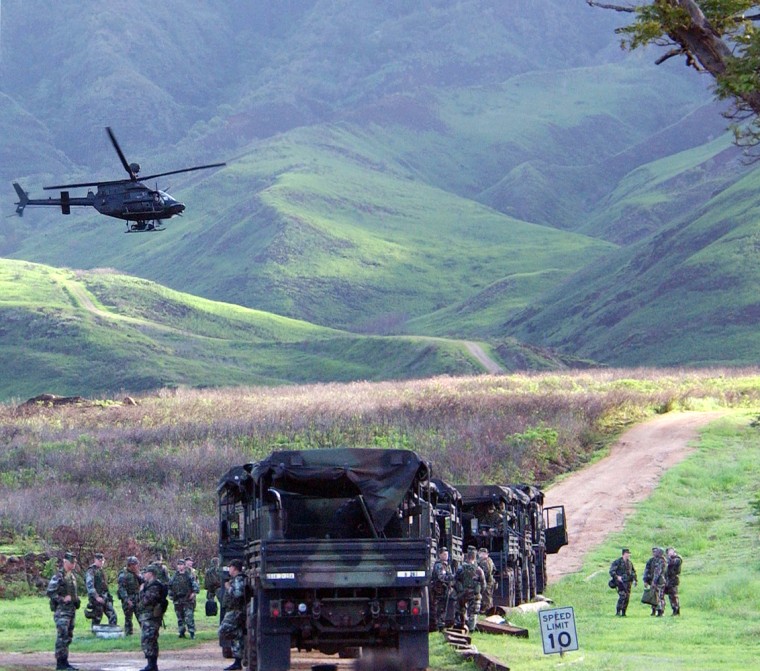The Army wants to resume live-fire exercises in a valley on the island of Oahu that Native Hawaiians consider sacred, despite a settlement agreement prohibiting such training.
In a motion filed in federal court this week, the Army seeks to modify a settlement with the Earthjustice Legal Defense Fund and the cultural preservation group Malama Makua to allow the exercises at Makua Valley in preparation for the deployment of Hawaii-based soldiers to Iraq.
Makua provides the only area on the densely populated island where the live-fire exercises can be conducted, said Maj. Gen. Benjamin R. Mixon, commanding general of the 25th Infantry Division (Light) and U.S. Army Hawaii.
“Our troops’ first exposure to live fire must not come as they land in a hostile area in combat,” Mixon said.
Earthjustice attorney David Henkin called the Army’s motion “inappropriate.”
Heritage sites being destroyed
The remote valley has been used for military training for decades, but in recent years Native Hawaiian and environmental groups have criticized the Army, saying ancient cultural sites and endangered plants were being destroyed.
Under the 2001 settlement, the Army was allowed to continue limited training in the Makua Valley for three years, but had to complete an environmental impact study for any additional use.
In that time, a planned burn of brush by the Army raged out of control, scorching more than half of the 4,856-acre valley and destroying at least 71 individual endangered plants and 150 acres of critical habitat.
No environmental study was conducted, and the Army had to stop using the area in October 2004.
Army cites 'war on terror'
But the Army said the nation’s security is on the line, requiring the live exercises.
“Our nation’s ongoing war on terror has again shown the critical need to provide our troops realistic, live-fire training in Makua Valley,” Mixon said.
Henkin said the Army had more than four years to complete an environmental study if it truly considered Makua crucial to training. He noted that it took the Army just two years to complete a separate environmental study involving the Stryker Brigade on various sites across Hawaii.
“They’ve allowed this to languish,” he said. “To some extent, they’ve made their bed.”
Henkin said there are other areas in the United States that are better suited for live-fire training.
“They use a lot of rhetoric, but if you break it down, they have basically constructed a situation to ask the court to let them to continue to break the law,” he said.
